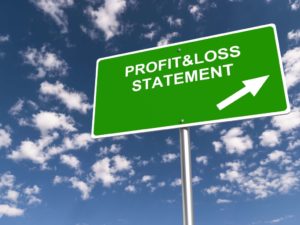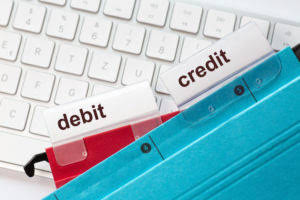
Implementing the right bookkeeping software is invaluable for streamlining financial compliance under Making Tax Digital as a sole trader. Keeping accurate business records is important because it helps to track business performance which can in turn aid decision-making on where to invest your time and money. We enjoy talking to business owners and self-employed professionals who are looking to get the most out of their accountant. You can visit us at any of our 409 locations, meet with us online through video call software, or talk to us by telephone. For more information on the records you should keep for your accounts and what your accountant will need for your tax return take a look at our article here.

Tracking Income and Expenses
- An accountant can help you pay taxes, keep records, and understand HMRC requirements.
- If taking cash payments out and about, log in to a mobile app if offered by your accounting software provider.
- To keep you up with your Sole Trader Bookkeeping, you need some solid software.
- As a sole trader, one of the most daunting tasks you may face is preparing for an audit.
- This will help you to avoid missing any transactions and will make it easier to reconcile your accounts.
Bookkeepers are important professionals in today’s economic and financial fields. Every company, even a small one, requires bookkeeping to maintain a healthy financial position. In this article, you’ll learn more about what bookkeepers do, why they’re important to a business, bookkeeping for sole trader and how much they earn. You’ll also explore how to become one and find suggested cost-effective courses that can help you gain job-relevant skills today. What does payroll cost and what documents are required to set it up for a UK business? It can be a complicated process, but we have a simple breakdown guide for you here.
Tracking Business Income
However, it is worth noting that spreadsheets may have limitations in terms of functionality and reporting capabilities. Which in turn will enable you to communicate effectively and professionally with others, and bolster your self-assurance as a business proprietor. Each has its pros and cons, and appropriate use depending on the nature of your business. We can understand the implications by examining the advantages and disadvantages of each method in detail. With clean books, streamlined financials and professional advice when needed, you can tackle self-assessment submissions confidently and efficiently. Bookkeeping isn’t complicated and with a little bit of basic admin, you can easily stay on top of yours.
Wonsulting and TikTok Resumes: Revolutionising Recruitment for the Future
You can learn bookkeeping for free https://www.instagram.com/bookstime_inc and at a low cost through online courses. These courses focus on bookkeeping fundamentals to help improve bookkeeping knowledge and skills. For example, you might complete the Intuit Bookkeeping Professional Certificate or several other bookkeeping courses offered by universities and companies on Coursera.

What Is Bookkeeping? Duties, Pay, and How to Become a Bookkeeper
This knowledge ensures that they have enough funds on hand to pay bills promptly and keep operations running smoothly without having to write off bad debt. Keeping your books in order as a sole trader is crucial to the success of your business. The benefits of accurate record-keeping are endless, including making better financial decisions, easier tax filing, and improved financial health. By following the steps outlined in this guide, you can establish a sound bookkeeping system that will help you stay on top of your finances and ensure that your business is thriving. In some cases, customers can’t or won’t pay their invoices, leaving you with bad debt. As a sole trader, it’s essential to write off bad debts correctly to maintain accurate financial reporting and properly manage inventory as a sole trader.
Therefore, it is vital to understand how bookkeeping works and to implement effective bookkeeping practices to ensure the success and longevity of your business. Bookkeeping allows owners to track their income and expenses, manage cash flow effectively and budget for taxes. Additionally, accurate financial records are necessary for lodging tax returns with the Australian Taxation Office (ATO). Filing tax returns on time is crucial for avoiding penalties and staying compliant with Australian tax laws. As a sole trader, you’ll need to file an annual individual income tax return that includes details of your business income and expenses.
Reconciling Bank Statements
This includes receipts or invoices for rent payments, supplies purchased such as stationery or office equipment like computers or printers. At public or private limited companies, income tax is automatically deducted from an employee’s paycheque. A sole trader must fill out and submit a self-assessment tax return at the end of every tax year. If you have not done this before, you will need to register for a self-assessment tax return on the government website at least 20 business days before https://www.bookstime.com/ your tax deadlines. You can earn certification from the National Association of Certified Public Bookkeepers (NACPB) and the American Institute of Professional Bookkeepers (AIPB). The NACPB offers a certified public bookkeeper (CPB) certification, while the CPB offers a certified bookkeeper (CB) certification.

Lessons from the TV World: The Link Between Developing TV Shows and New Businesses
By keeping accurate records and using digital accounting software, you can make your bookkeeping easier and avoid any potential penalties or fines. Preparing for self-assessment and tax returns can be a daunting task, but it is essential for complying with tax regulations and avoiding penalties. This involves keeping accurate records of your income and expenses throughout the year, and ensuring that you have all the necessary documentation to complete your tax return. As a sole trader, you are responsible for ensuring that you comply with all relevant tax laws and regulations. This involves keeping accurate records of your income and expenses, reporting your earnings to HMRC, and paying any tax that you owe. Keeping track of invoices and receipts is essential for accurate bookkeeping.
By maintaining detailed records of your income and expenses, you’ll have a solid foundation for accurate financial reporting, tax calculations, and business analysis. This step ensures you have a comprehensive picture of your financial performance as a sole trader. Professional bookkeeping can help save time by taking the pain of maintaining your own records away, allowing you to focus on building your business and achieving the right work/life balance.

